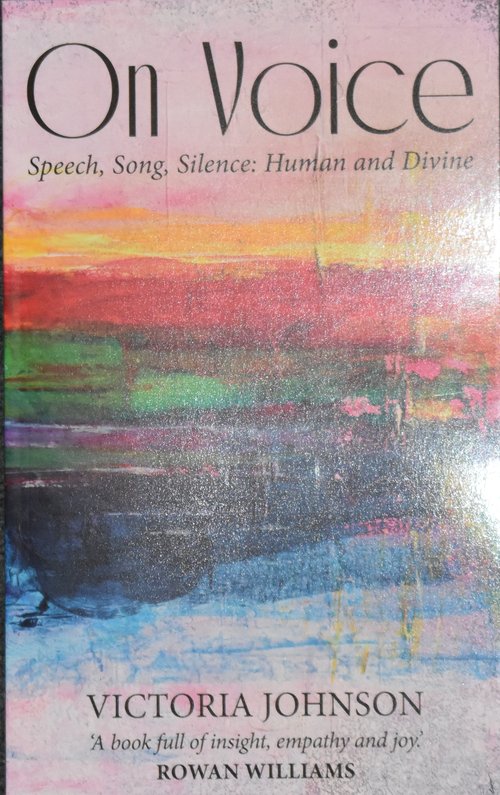The sound of the divine

On Voice
Speech, Song, Silence: Human and Divine
By Victoria Johnson
Published: Darton, Longman & Todd; 2024
ISBN: 978-1-913657-98-7
Price: £14.99
I am very pleased that I was invited to review On Voice.
The author, Victoria Johnson, is Dean of St John’s College, Cambridge, and was previously Precentor of York Minster, where she oversaw worship and music at the cathedral – the first woman to inhabit that role in a history which reaches back over a thousand years.
In her rather long Introduction, we learn that Johnson ‘fell’ into a life of music. She is not from a privileged background, her parents scrimped and saved to pay for her music lessons and they were somewhat bemused at the prodigious gifts that their daughter displayed. Johnson also pays tribute to all those who encouraged her over the years, especially the vicar’s wife and choir mistress, herself a skilled musician, in their local parish (“week by week, egged on by her brilliance, I sang and sang.”)
In Chapter 1, we are asked to consider what God’s voice sounds like. Perhaps, suggests the author, “God’s voice is every voice of every frequency….a rainbow voice of red, orange, yellow, green, blue, indigo, violet.”
Johnson then considers what Christ’s voice might have sounded like. I was surprised by a nugget in this chapter, when the author says that ‘we know Jesus sang’. We do? I wondered. And, yes, there, in the Gospels of Matthew and Mark, at the end of the Last Supper narrative, is one sentence that I must have read countless thousands of times but which I had never thought about before: “When they had sung a hymn, they went out to the Mount of Olives.”
This book is peppered with references to the Church of the past preventing women and girls from offering their voices in music and ministry. It is in this context that our own St Davids Cathedral is credited as being a trailblazer by introducing girl choristers in the 1960s.
Amongst other things, the Church’s loss of voice with Covid, church bells, the voice of silence and artificial intelligence comes under scrutiny.
The final chapter considers Creation in all its glory, where we learn that, from huge whales to microscopic DNA, everything makes sound. The author posits that “our world, and everything within it, all that is seen and all that is unseen, echo and resound with what we might decide to call praise.”
Johnson’s writing is lyrical, accessible and gives much food for thought. Highly recommended.
Tessa Briggs